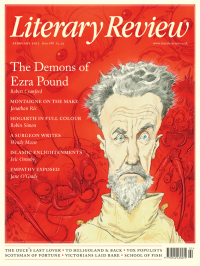Keith Miller
Drawn & Quartered
4321
By Paul Auster
Faber & Faber 866pp £18.99
Archibald Isaac Ferguson, Archie to his friends, is born in New Jersey in 1947. After that, things get complicated. His father dies horribly in a botched arson attack on his furniture store, or he lives to cash out on the insurance and move the family to stifling suburban affluence. His parents stay together, or they don’t. His mother becomes a renowned gritty-realist photographer married to a music critic, or stays unhappily (or happily) married. Archie himself loses his virginity to a ‘kissing cousin’, or in a Manhattan brothel, or to a male friend.
Paul Auster’s 4321 is really four novels in one, even if – spoiler alert – one of the stories runs shorter than the other three. It explores chance and contingency, tracing the impact of the small things that happen in any life (or don’t) to steer it hither or yon. Archie’s coming of age is sticky with adolescent male grue, but redeemed by a healthy dose of intellectual curiosity and – in some iterations at least – a dawning awareness of racial and political injustice, with civil rights, JFK, Vietnam, campus riots, the day they executed the Rosenbergs and so on seldom far from view.
This seems like a pretty good idea (even if the alternate-worlds hypothesis isn’t allowed to extend beyond Archie’s immediate circle – there’s no version of events in which the Rosenbergs get to see 1954). It is executed with a kind of chilly rigour whereby all the Archies get a chapter

Sign Up to our newsletter
Receive free articles, highlights from the archive, news, details of prizes, and much more.@Lit_Review
Follow Literary Review on Twitter
Twitter Feed
Under its longest-serving editor, Graydon Carter, Vanity Fair was that rare thing – a New York society magazine that published serious journalism.
@PeterPeteryork looks at what Carter got right.
Peter York - Deluxe Editions
Peter York: Deluxe Editions - When the Going Was Good: An Editor’s Adventures During the Last Golden Age of Magazines by Graydon Carter
literaryreview.co.uk
Henry James returned to America in 1904 with three objectives: to see his brother William, to deliver a series of lectures on Balzac, and to gather material for a pair of books about modern America.
Peter Rose follows James out west.
Peter Rose - The Restless Analyst
Peter Rose: The Restless Analyst - Henry James Comes Home: Rediscovering America in the Gilded Age by Peter Brooks...
literaryreview.co.uk
Vladimir Putin served his apprenticeship in the KGB toward the end of the Cold War, a period during which Western societies were infiltrated by so-called 'illegals'.
Piers Brendon examines how the culture of Soviet spycraft shaped his thinking.
Piers Brendon - Tinker, Tailor, Sleeper, Troll
Piers Brendon: Tinker, Tailor, Sleeper, Troll - The Illegals: Russia’s Most Audacious Spies and the Plot to Infiltrate the West by Shaun Walker
literaryreview.co.uk